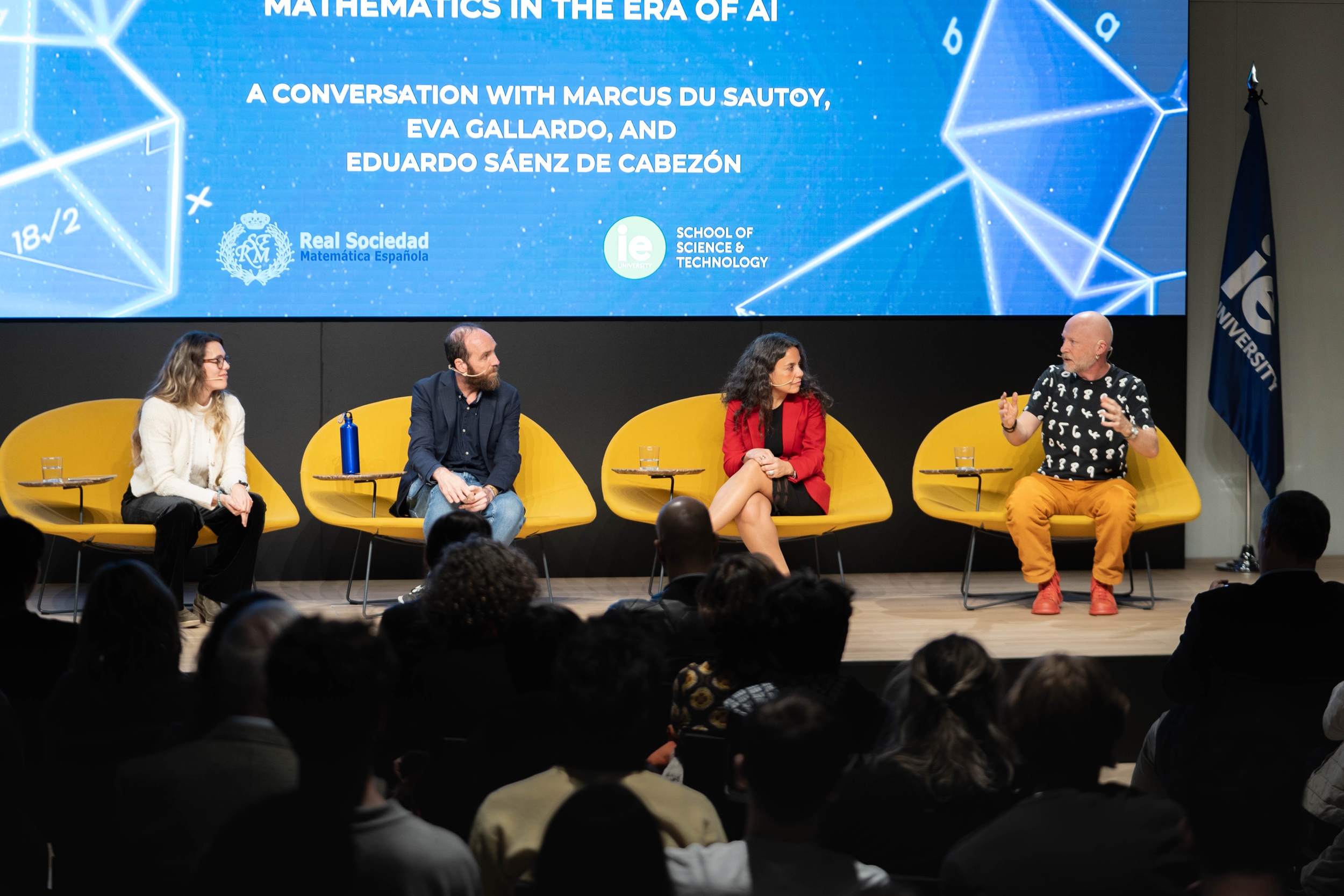On Tuesday, November 21st, the event “Mathematics in the Era of AI” was held at the IE Tower, Madrid. The round table was co-organized by the IE School of Science and Technology and the Royal Spanish Mathematical Society (RSME). The speakers included mathematicians Marcus du Sautoy, an Oxford professor, international author, and mathematical communicator; Eva Gallardo, a professor at the Complutense University of Madrid and president of the RSME; and Eduardo Sáenz de Cabezón, a professor at the University of La Rioja, writer, and mathematical communicator.
The panel was moderated by Irene Alda, academic director of the applied mathematics degree at IE University and member of IE Research Datalab. The talk began by addressing a common university experience: students often expect mathematics to focus on calculations but discover that it’s more about understanding concepts. Eduardo spoke about the gap between high school and university mathematics. He suggested that it’s necessary to better prepare students in “the way of thinking” required at university. Eva discussed how technology, especially artificial intelligence, can make learning mathematics less centered on calculations, and more on understanding concepts, plus it could also help us solve the millennium problems. Marcus contributed his vision on the integration of mathematics with other disciplines to achieve a more complete and contextualized education. In the different perspectives, passion was the common factor: an essential ingredient for tackling complex mathematical problems.
As the conversation went on, the panelists examined how mathematical education has changed in recent years and shared their ideas about future trends. They debated the balance between practical and traditional teaching methods and the skills that mathematics students need today—constant learning is key. They also shared personal stories about what or who inspired them to pursue a career in mathematics and offered advice on how to maintain students’ interest in learning. To conclude, they discussed the importance of learning from mistakes, similar to how a neural network trains and improves its predictions by making errors. The main conclusion was that curiosity, passion, humility, acceptance of errors, and hard work are essential for delving deeper into the study of mathematics.
Watch the full talk below:
